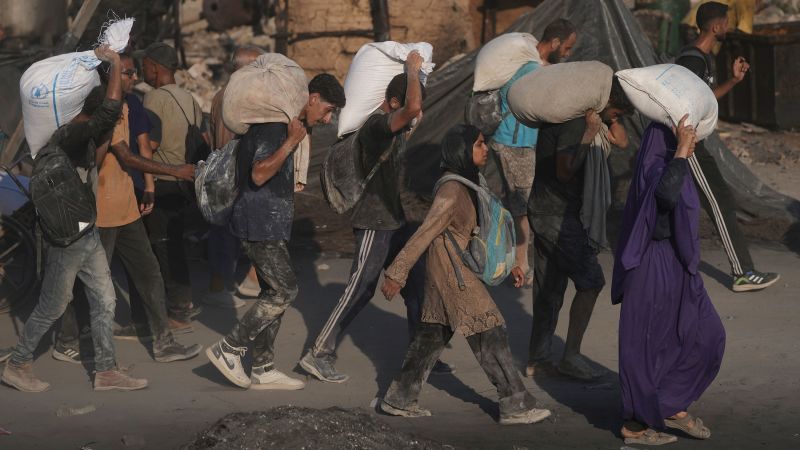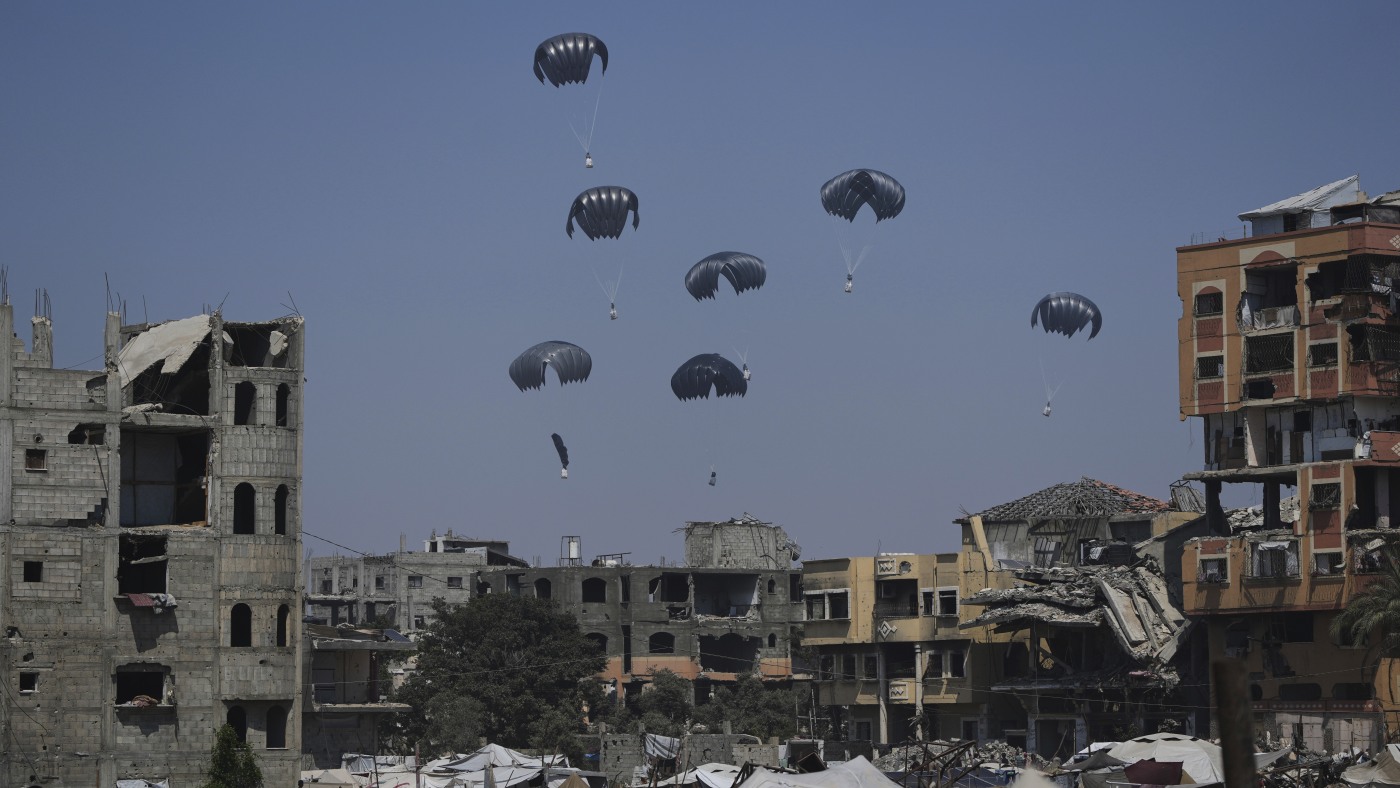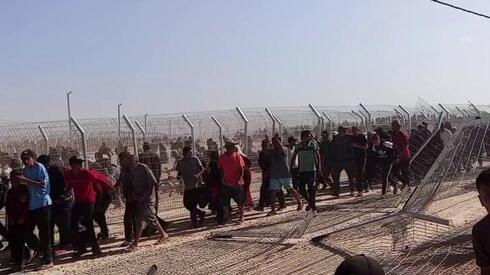T4K3.news
Israel allows limited aid into Gaza amid international scrutiny
Israel's military has begun easing blocks on aid deliveries following global criticism.

Israel's military responds to international pressure by allowing some aid into Gaza amidst severe starvation.
Israel pauses fighting as aid trickles into Gaza amid urgent humanitarian crisis
In light of increasing worldwide criticism over the dire humanitarian situation in Gaza, the Israeli military has begun to ease restrictions on aid deliveries. A recent airdrop operation saw supplies distributed in central Gaza, with many Palestinians scrambling to collect life-saving items. Ahmad Faiz Fayyad, a local resident, expressed deep frustration, stating, "This aid is disgraceful. We are not dogs to be made to run after aid." Amid chaotic scenes of desperation, some individuals managed to secure small amounts of food. However, many reported that the airdrop method was dangerous and humiliating, sparking fear of violence among those who sought aid. As international voices, including that of the UN, call for more efficient and dignified delivery of assistance, the situation remains precarious.
Key Takeaways
"This aid is disgraceful. We are not dogs to be made to run after aid."
Fayyad criticizes the method of aid delivery, highlighting issues of dignity.
"Why use airdrops when you can drive hundreds of trucks through the borders?"
A UN spokesperson points out the inefficiency of airdrop methods.
The current situation in Gaza highlights the grave challenges surrounding humanitarian assistance in conflict zones. The shift in Israel's military approach, allowing aid to trickle in, may reflect a response to escalating international scrutiny. However, the reliance on airdrops rather than traditional land deliveries raises serious concerns about both safety and respect for those in need. The chaotic nature of the aid collection process only underscores the inefficiency and potential for conflict, raising ethical questions about how humanitarian assistance is organized and delivered during crises.
Highlights
- Aid or humiliation? Many in Gaza choose dignity over desperation.
- We’d rather die of hunger with dignity than die in humiliation.
- The way we receive aid is just as important as the aid itself.
- Airdrops expose the failures of humanitarian delivery.
Humanitarian crisis raises sensitivity on delivery methods
The reliance on airdrops in Gaza has sparked anger and concern about the dignity of aid recipients. The chaotic scenes not only expose vulnerabilities but also increase the risk of violence during aid collection. Critics argue for safer, more effective land deliveries that respect human rights.
As the humanitarian crisis unfolds, the need for a more respectful approach to aid delivery becomes increasingly urgent.
Enjoyed this? Let your friends know!
Related News

Israel pauses attacks in Gaza to allow aid deliveries

Israeli Forces Face Allegations of War Crimes

Israel conducts airdrops to aid Gaza amid criticism

Keir Starmer summons cabinet for Gaza crisis meeting

Witness challenges claims of Israeli troops firing on civilians

Pope condemns violence in Gaza amid ongoing humanitarian crisis

Gaza aid group claims success as starvation rises

Aid groups highlight starvation crisis in Gaza
